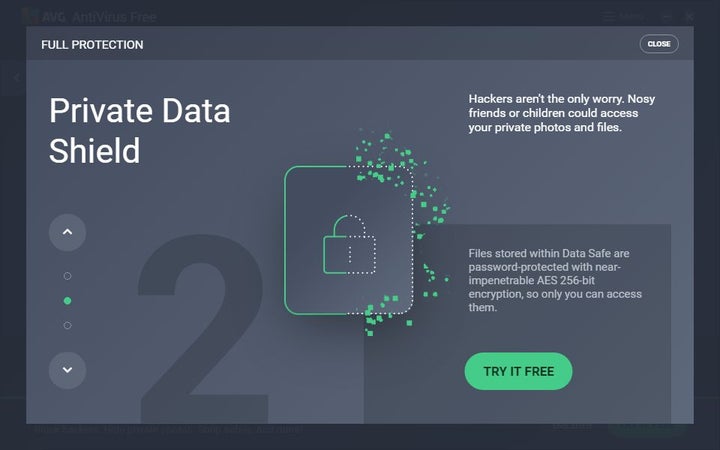Identity Theft Threats are growing in recent months

- January 13, 2025
- Updated: January 14, 2025 at 10:41 AM
In recent months, we have witnessed an alarming increase in identity theft cases. Cybercriminals have refined their techniques, using advanced tools such as artificial intelligence to carry out more precise and personalized scams.
This surge has doubled economic losses compared to the previous year, exceeding 10 billion euros in 2024. It is a serious problem that affects everyone—ordinary individuals and large companies alike—and highlights the urgent need for stronger protection.
But what’s going on? More and more people are finding unexplained purchase charges, compromised bank accounts, or hacked social media profiles. These situations are highly damaging and have the potential to directly affect the victim’s reputation.
Making matters worse, the emotional and psychological impact of being an identity theft victim can be devastating. The feeling of vulnerability and the difficulty of regaining control over personal information generate significant stress with a wide range of harmful consequences. That’s why it’s crucial to understand how these attacks work and what measures you can take to protect yourself, including using a trusted antivirus solution like AVG AntiVirus Free.

Main Identity Theft Threats
Identity theft involves various tactics criminals use to obtain personal and financial information. Below are the most common methods so you can identify and avoid them:
- Spyware
This malicious software is secretly installed on devices to collect data such as passwords, banking information, and browsing habits. Spyware can infiltrate through unsafe program downloads or suspicious links. If you notice your device running slower than usual or strange ads popping up, you may be infected. - Phishing
This tactic involves sending fraudulent emails, text messages, or links that appear to come from trustworthy sources, like banks or government agencies. The goal is to trick you into giving up sensitive information, such as credit card numbers or login credentials. - Password Theft
Criminals use various techniques—such as brute-force attacks or social engineering—to obtain your passwords. Once they have your credentials, they can access bank accounts, social media profiles, and other online services, causing enormous damage. A word of advice? Never use the same password on multiple sites. - Data Breaches
Security failures in companies and organizations can expose the personal information of thousands of users. Cybercriminals then use this data to commit fraud and identity impersonation. In 2023, more than a million identity theft complaints were reported in the United States alone, illustrating the scale of the problem. - Deepfakes
By using artificial intelligence to manipulate images and videos, cybercriminals can create fake but realistic content that later serves to trick victims into handing over confidential information. This method has become increasingly popular among cybercriminals, boosting the effectiveness of their scams.
These threats are not only growing more frequently but also becoming more sophisticated. Staying informed is, therefore, your first line of defense.
How to Protect Yourself From Identity Theft
Now that you know how these threats work, it’s time to take steps to safeguard your personal information. Here are some essential tips:
- Stay Alert to Data Breaches
Keep track of possible security breaches on platforms and services you use. If a company you interact with experiences a data breach, change your passwords immediately and monitor your accounts for suspicious activity. Free online monitoring tools like Have I Been Pwned can alert you if your information has been leaked on the Dark Web. - Watch for Possible Signs of Identity Theft
Pay close attention to your purchase statements to spot any charges you haven’t made, debt collector calls for accounts you don’t recognize or notifications from financial institutions about unusual activity. Detecting these signs early can prevent bigger problems. Also, regularly review your credit reports to catch any irregularities. - Practice Safe Internet Habits
- Use Strong, Unique Passwords: Avoid reusing passwords across multiple websites, and consider using a password manager to keep them secure. A good password includes uppercase letters, lowercase letters, numbers, and special characters.
- Enable Two-Factor Authentication: This adds an extra layer of security by requiring a second verification factor in addition to the password, such as a code sent to your phone or an authentication app.
- Avoid Suspicious Links and Emails: Don’t click on links or download attachments from unknown senders or anything that looks suspicious. If an email seems fishy, verify its authenticity by contacting the organization directly.
- Browse Only on Trustworthy Websites: Confirm that the websites you visit are legitimate, especially for financial transactions. Look for the padlock icon in the address bar and ensure the URL starts with “https.”
Protect Your Devices With AVG AntiVirus Free: Your Trusted Antivirus
A robust security solution is essential to protect yourself from all kinds of Internet threats. AVG AntiVirus Free provides helpful protection against viruses, malware, and phishing attacks, helping to keep your personal information safe. This antivirus also blocks malicious downloads and alerts you to suspicious websites before you visit them.
Additionally, AVG AntiVirus Free includes a specific feature to protect you from potential email-related threats: Email Shield. This tool scans incoming messages for threats and blocks phishing attempts, malware, or dangerous attachments. Email Shield doesn’t wait for the threat to enter your device—it blocks it before it can do any harm.As you can see, staying protected has never been easier. Don’t wait to become a victim of identity theft! Download AVG AntiVirus Free today and reinforce the security of your devices.
Publicist and audiovisual producer in love with social networks. I spend more time thinking about which videogames I will play than playing them.
Latest from Pedro Domínguez
You may also like

Top 5 Cybersecurity Predictions for 2025
Read more

A Rise in Password Stealers: How to Combat This Dangerous Malware
Read more

5 Security Resolutions for 2025 to Stay Protected Online
Read more

The 6 video game sequels you didn't know existed
Read more

How can you identify a financial scam on social media?
Read more

Connected Winter: How to Make the Most of the Season Without Neglecting Your Digital Security
Read more